Nigeria is facing a major crisis as primary school teachers in the Federal Capital Territory (FCT) continue their indefinite strike over unpaid wages and unresolved welfare concerns. Juliet Jacob analyses the implications of the strike in this special report.

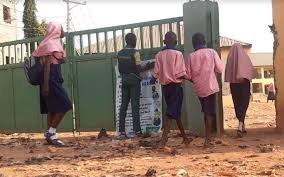
The Lingering Crisis in FCT Public Primary Schools and Conundrum of FCT Primary School Teachers’ Strike
The current strike by the FCT chapter of the Nigeria Union of Teachers (NUT) is a continuation of earlier industrial actions.
Teachers resumed their strike on September 18, 2024, after the expiration of a 14-day ultimatum issued to the six area councils of the FCT over unmet demands.
While the strike was temporarily suspended on October 7, it resumed on December 1 following the non-implementation of the new N70,000 minimum wage and other outstanding payments.
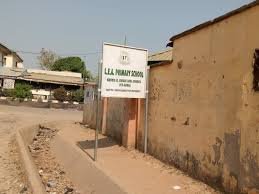
Teachers Say No-Going-Back
Public primary schools in the Federal Capital Territory (FCT) remain shut as teachers continue their industrial action over unpaid entitlements and unresolved welfare issues.
This strike, which resumed on December 1, 2024, has left thousands of pupils stranded and parents frustrated.
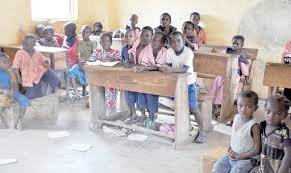
The teachers had initially embarked on a strike on September 18, 2024, after issuing a 14-day ultimatum to the six area councils, but temporarily suspended it on October 7.
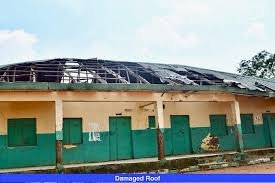
The Nigeria Union of Teachers (NUT), FCT Chapter, cited the non-implementation of the new N70,000 minimum wage and other outstanding payments as reasons for the resumed strike.
The union’s grievances center on unpaid arrears and the non-implementation of salary adjustments, reflecting a broader crisis in Nigeria’s education sector.
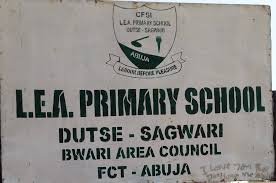
The teachers are also demanding resolution on five key issues: payment of 60% of 25-month-old minimum wage arrears, implementation and arrears of 25% and 35% salary increases, payment of 40% peculiar allowance, payment of N35,000 wage award arrears and continuous implementation of the 2022 agreement on outstanding entitlements.
These unresolved demands have led to the ongoing strike, leaving thousands of pupils stranded and parents frustrated.
The strike has sparked concerns about the impact on the education sector, particularly on vulnerable students.
Parents and guardians are calling for swift resolution to the dispute, urging the authorities to address the teachers’ grievances and reopen schools
The Situation on the Ground
Visits to public primary schools in Abuja reveal deserted compounds, with classrooms locked and only security personnel present. At LEA Primary School, Kubwa, a security guard identified as baba Sunday confirmed that neither teachers nor pupils have reported since the strike resumed.
Parents are equally affected by the crisis. Mrs. Mustapha, a trader and mother of five whose children attend LEA Primary School, dutse alhaji, lamented, “My children have been at home since the strike started. They don’t have anything to do, so they just play all day. It’s hard because, as a trader, I now have to deal with them being home when they should be in school.”
Nigeria’s Education Sector Plagued by Crisis
A crippling strike by primary school teachers in the Federal Capital Territory has highlighted the broader crisis plaguing Nigeria’s education system.
The country grapples with alarming statistics, including over 10.2 million primary school-age children being out of school and a staggering 74% of children aged 7-14 lacking basic reading and math skills.
Frequent attacks on schools, particularly in northern states, have led to widespread closures, further exacerbating the issue, according to UNICEF.
Despite these pressing challenges, the government’s budgetary allocations to education remain woefully inadequate.
In 2023, the Ministry of Education received ₦1.08 trillion, but only ₦136.76 billion was released for capital expenditure, underscoring the need for increased investment in the sector.
The ongoing strike and underlying education crisis have sparked concerns about the future of Nigeria’s youth.
With millions of children already out of school, the country risks perpetuating a cycle of poverty and inequality.
Addressing the systemic issues plaguing the education sector is crucial to securing a brighter future for Nigeria’s next generation.
Reactions and Government Efforts
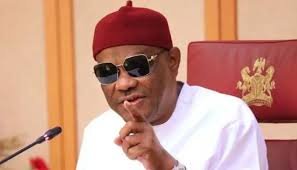
FCT Minister Nyesom Wike has threatened to withhold 10% of the Internally Generated Revenue (IGR) meant for area councils to settle striking primary school teachers’ entitlements.
This comes after the teachers resumed their strike last week, demanding implementation of a 40% Peculiar Allowance and payment of 25 months’ Minimum Wage Arrears.
Wike expressed frustration with the area councils for failing to meet their commitments, stating, “We have tried to do what we could to see the system was moving well. If the teachers are not paid, I will use the 10% of IGR to pay them”.
The minister’s warning was issued during a press briefing, where he emphasized that the government would not allow children to suffer due to the strike.
He also revealed that he had invited area council chairmen and the FCT NUT leadership for discussions. Meanwhile, Dr. Hassan Sule, acting Chairman of the FCT Universal Basic Education Board (UBEB), appealed to the NUT to suspend the strike, citing ongoing discussions with area council chairmen.
However, union leaders remain resolute, with Kubwa chapter Chairman Comrade Ameh Baba insisting that the strike will continue until all demands are met.
The strike has already left thousands of pupils stranded, and parents are growing increasingly concerned about the impact on their children’s education.
As tensions escalate, it remains to be seen whether Wike’s threat will prompt the area councils to meet the teachers’ demands.
Teachers’ Strike Wreaks Havoc on Education System
The ongoing strike by primary school teachers has severe implications for the education sector.
The strike, which began just three days before the conclusion of the first-term examinations, has disrupted the academic calendar, leaving pupils without critical instructional time.
Since September, strikes have lasted nearly three weeks, causing significant disruptions.
The strike disproportionately affects low-income earners, who rely on public schools as the only affordable option for their children’s education.
Meanwhile, private school pupils have resumed classes, exacerbating the existing inequality in the education system.
This prolonged strike threatens to widen the knowledge gap between public and private school students, potentially perpetuating a cycle of poverty and disadvantage.
As the strike continues, concerns grow about the long-term consequences for Nigeria’s education system.
Prolonged disruptions can lead to decreased academic performance, increased dropout rates and a lack of preparedness for future educational pursuits.
The government has been urged by stakeholders to address the teachers’ grievances and find a lasting solution to prevent further damage to the education sector and ensure equal opportunities for all students.
Wike’s Futle Intervention
The strike, which resumed after Minister Nyesom Wike’s intervention was deemed insufficient, highlights the systemic issues plaguing the sector, including poor working conditions and lack of accountability.
Despite Wike’s efforts, the failure of area councils to fulfil their agreements has exacerbated the situation, leaving thousands of pupils without access to education.
The Federal Ministry of Education’s mission to use education as a tool for development is being undermined by these challenges, which have led to decreased academic performance, increased dropout rates, and a widening knowledge gap between public and private school students.
Government Urged to End FCT Primary School Teachers’ Strike
Stakeholders are calling on the government to take immediate action to resolve the ongoing strike by primary school teachers in the Federal Capital Territory (FCT).
To end the strike, the government must prioritize the payment of outstanding arrears and implement agreed salary adjustments.
This move will address the teachers’ grievances and restore normalcy to the education sector.
Beyond immediate resolution, stakeholders recommend policy reforms to strengthen frameworks like the Minimum Standards for Safe Schools (MSSS).
This will ensure consistency in school funding and safety, preventing similar disputes in the future. Additionally, increased funding for education, particularly for public primary schools, is crucial.
As the foundation of Nigeria’s education system, primary schools require specific attention and resources to provide quality education.
Push for Transparency and Accountability
Nigerian stakeholders are pushing for transparency and accountability in the education sector, advocating for mechanisms to monitor compliance with agreements and fund usage.
Implementing these measures would prevent future disputes, promote accountability, and restore stability to FCT primary schools, ensuring uninterrupted education for thousands of pupils.
This move would set a positive precedent for Nigeria’s education system, building trust among stakeholders and demonstrating responsible stewardship of public funds.
Effective grant management practices, such as clear reporting requirements, financial oversight, and ethical considerations, are crucial to achieving these goals.
A Teacher Sheds Light
In an interview with Africa Health Report (AHR), a teacher from a government primary school in the Federal Capital Territory (FCT) who craved anonymity, shed light on the challenges facing primary school teachers in the area.
The teacher explained that while secondary school teachers in the FCT are paid directly by the minister, primary school teachers receive their salaries through the area council chairmen.
This system, according to the teacher, has led to salary deductions, delays, and outright non-payment.
“The area council chairmen slash our salaries into three,” the teacher lamented. “Secondary school teachers are earning better than us. When we went on strike on October 7th because they refused to pay us the promised 40%, 25%, and 35% palliatives, nothing changed.
“If you count all the allowances they are supposed to implement for teachers, there are about six or seven of them, but they haven’t honored any. How can a primary school teacher sustain themselves under such conditions?”, she added.
The teacher disclosed that the FCT minister had previously threatened to withhold 10% of the area councils’ allocations to settle teachers’ dues but later went silent.
Although the minister persuaded teachers to return to work, promising action, the issues remain unresolved.
She said further, “The problem lies with the area council chairmen, particularly those in Kuje and Bwari Area Councils, like Hon. (Dr.) John Gabaya.
“They withhold our salaries, slash our payments, and sometimes fail to pay us at all. Meanwhile, they sit comfortably on their full salaries.”
The teacher praised the chairman of Abaji Area Council for improving schools and supporting teachers but noted that his efforts are being undermined by other chairmen.
According to her, “The chairman of Abaji has done a lot, but because he’s not an indigene, they are fighting him. Even the FCT minister tried to resolve this, but it seems like we are being used for political games.”
The teacher expressed frustration over the impact of these issues on education quality and advised parents to enrol their children in private schools if they could afford it.

“Primary education is the foundation of a child’s future, but the current system is failing. Teachers have lost their passion for the job because of the poor conditions. How can we be expected to teach the next generation when we can barely survive on our salaries?”, she noted.
The teacher added that the situation would likely worsen in January if the government fails to act. “We resumed teaching only to help the children write their exams, but the strike will continue in January if nothing is done.
“If Wike, the FCT minister, doesn’t step in and remove us from the control of the area councils, primary education in the FCT cannot thrive. The chairmen are exploiting us and eating into our allowances. It’s heartbreaking. If you knew how much is being stolen from us, you’d shed tears for primary school teachers in this country.”
The teacher called on the government and the public to take the plight of primary school teachers seriously.
“This is not just about us; it’s about the future of these children. If nothing changes, we will keep striking, and the children will keep suffering. We need action, not promises”, she concluded.



